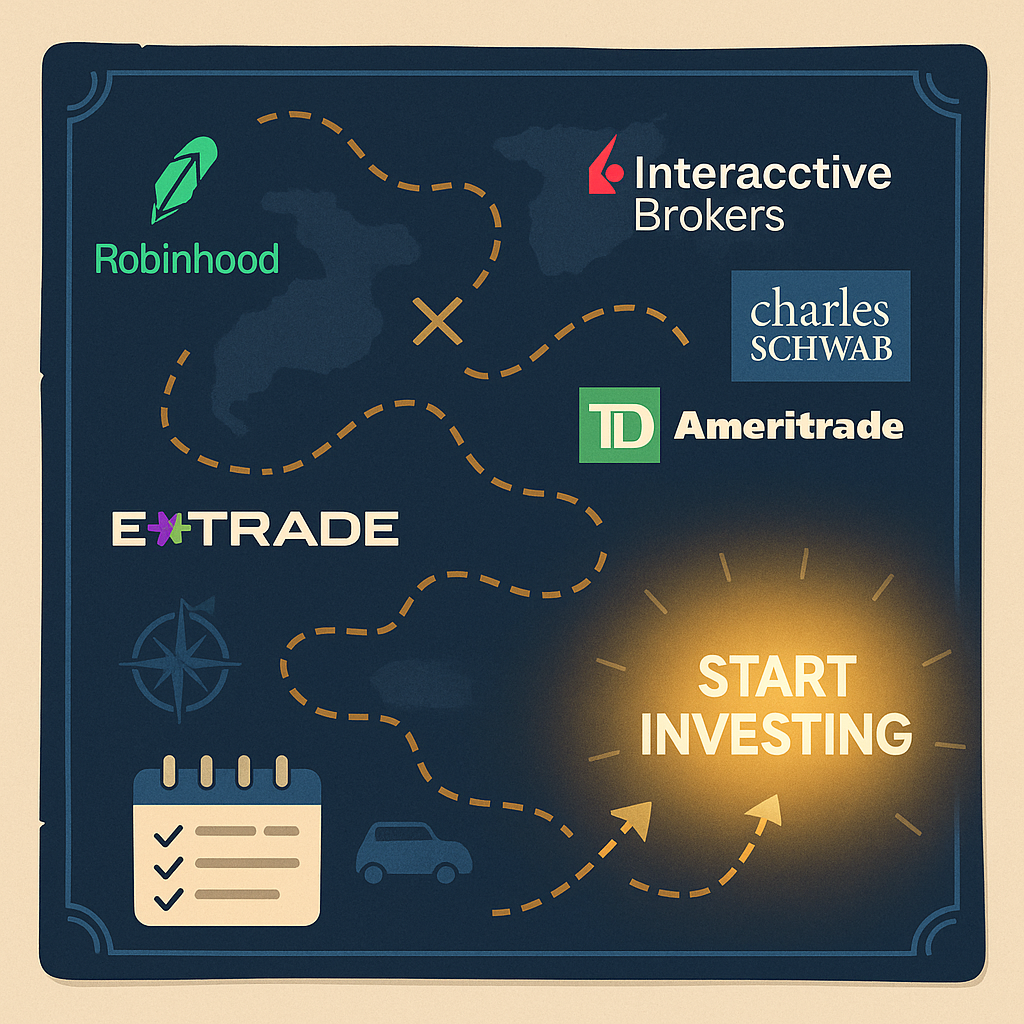When you’re ready to embark on your financial journey, selecting the right brokerage can be a pivotal step. Your choice of broker can significantly impact your investment experience, influencing everything from your trading costs to the variety of assets you can access.
The plethora of brokerage firms available in today’s market can make this task daunting. However, by understanding what to look for in a brokerage, you can easily make an informed decision that aligns with your investment goals and personal preferences. This guide will help you navigate the essentials of choosing a brokerage to set you up for success.
Understanding brokerage basics

Before diving into specific brokers, it’s crucial to understand what a brokerage is and the fundamental services it offers. At its core, a brokerage acts as a middleman between buyers and sellers in financial markets. Brokers provide the platform and tools you need to trade various securities such as stocks, bonds, and mutual funds.
They can come with an array of features including research resources, customer service, and trading recommendations. Additionally, different types of brokerages cater to different levels of investor experience. Choosing the right one depends on whether you are a novice or an experienced investor looking for advanced tools.
For entry-level investors, a discount brokerage may be the ideal choice. These brokers offer low fees and a user-friendly platform, often with educational resources designed to help beginners learn the ropes of investing. They typically do not provide personalized investment advice, making them best suited for those who prefer a hands-on approach.
On the other hand, full-service brokerages offer personalized advice and a wider array of services. Although they come with higher fees, the personalized guidance can be invaluable for those who want a more tailored investment plan. Understanding these brokerage types is your first step in selecting the appropriate one.
Key features to look for
Once you’ve grasped the basics, it’s time to delve into the features that can make or break your broker choice. Fee structure is one of the most critical factors; high fees can significantly erode your profits. Examine the fees for trades, account maintenance, and any other costs associated with the services offered.
Another significant aspect is the trading platform itself. A good platform should be intuitive and easy to navigate, offering a smooth user experience even during busy trading hours. Look for responsive customer service, as timely support can be crucial when you encounter issues.
Security and reputation
Security is paramount when dealing with financial transactions and sensitive information. Ensure that the brokerage you choose has proper security measures in place, such as encryption and two-factor authentication. Also, your brokerage should be registered with regulatory bodies like the Financial Industry Regulatory Authority (FINRA) or the Securities and Exchange Commission (SEC).
Reputation is another crucial factor to consider. Look for reviews and testimonials from other investors to get a sense of the brokerage’s reliability and customer service quality. An established firm with a strong reputation often indicates a history of good service and ethical business practices.
Making a personalized choice
After understanding the fundamental concepts and identifying key features to look for in a broker, it’s time to make a personalized decision. The right brokerage should align with your investment goals, risk tolerance, and experience level. If you’re just starting out, you might prioritize low fees and an educational platform; more seasoned traders might look for advanced tools and data analytics.
Take advantage of free trial periods or demo accounts that many brokerages offer. These can give you a sense of the platform’s usability and additional services before you commit fully. Consider drafting a list of your must-have features and aligning them with what different brokers offer.
Leverage technology and resources
In the digital age, leveraging technology can greatly enhance your investment experience. Advanced trading platforms offer features like real-time data feeds, sophisticated charting tools, and algorithmic trading capabilities. These can provide a significant edge if you plan on engaging in frequent trading.
Don’t overlook mobile trading options. A quality mobile app can keep you connected to the markets on the go, offering you flexibility and real-time updates. If you value the ability to trade anywhere and anytime, ensure that the broker’s mobile offering is robust and user-friendly. Finally, don’t hesitate to use online forums and reviews to gauge the experiences of other investors.
Customer support and community
No matter how sophisticated a platform is, there will be times when you’ll require assistance. Reliable customer support can provide invaluable help during such instances, making it a vital feature to consider. Check if the broker offers multiple channels of support, such as live chat, email, or phone lines, and make sure they operate within hours that align with your trading needs.
Beyond direct customer support, some brokerages offer community features. These are platforms where investors can engage, share insights, and learn from one another’s experiences. Forums, user groups, or even local events can provide additional support and enhance your knowledge base.





